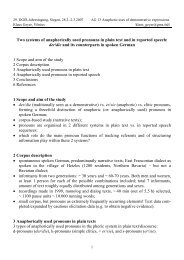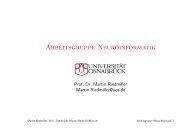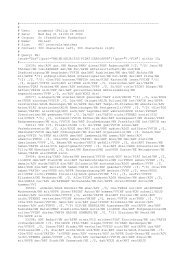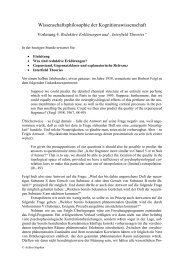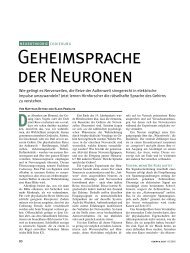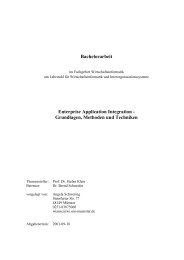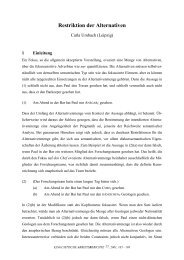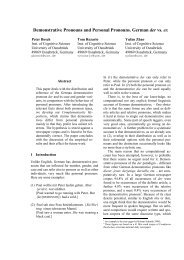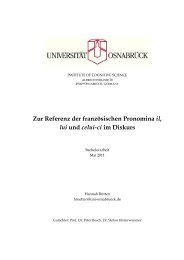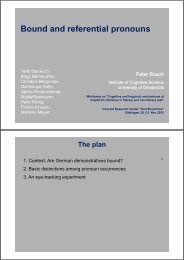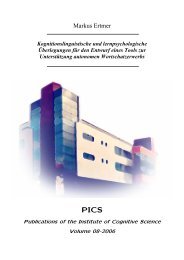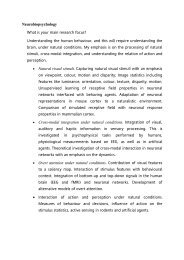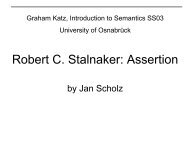Weak definites and German preposition - Cognitive Science
Weak definites and German preposition - Cognitive Science
Weak definites and German preposition - Cognitive Science
You also want an ePaper? Increase the reach of your titles
YUMPU automatically turns print PDFs into web optimized ePapers that Google loves.
A sketch for the semantics of rPPs<br />
Suppose we take something like the following as an analysis for<br />
the PP an dem Fenster [at the window]:<br />
�an dem Fenster� = �P. [AT(�y.WINDOW y)] P<br />
built up from<br />
the <strong>preposition</strong>: �an� = �x �P. [AT x] P<br />
<strong>and</strong> the definite NP: �dem Fenster� = �y.WINDOW y<br />
which again is built from<br />
the noun: �Fenster� = �x.WINDOW x<br />
<strong>and</strong> the determiner: �dem� = �Q.�y(Qy)<br />
A preliminary sketch for the semantics of cPPs<br />
Now, what are we to do with the cPP?<br />
am Fenster<br />
The noun wants a determiner – but am is no determiner – <strong>and</strong><br />
since the whole thing is a PP, it wants a <strong>preposition</strong> as its head –<br />
but am is not a <strong>preposition</strong>. If it were, it would govern an NP, but<br />
Fenster is just a bare noun.<br />
The probably simplest solution* is to assume the new syntactic<br />
category of <strong>preposition</strong>al determiner, which would contain, in<br />
st<strong>and</strong>ard <strong>German</strong>, the following lexical items:<br />
am, beim, im, vom, zum, zur<br />
This idea would be analogous to an equally plausible treatment<br />
of English <strong>preposition</strong>s that govern bare singulars.<br />
(*suggested by Dan Flickinger, p.c.)<br />
2<br />
9<br />
3<br />
0<br />
29<br />
30



